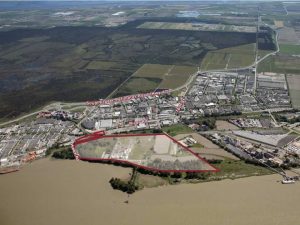Industrial real estate is a very good barometer for the economic health of our province. When the market is strong, the impacts are measurable.  They include an increase in well-paying jobs, expansion of the property tax base (which reduces the relative property tax burden on residents), an increase in general tax revenue from expanded economic development and an increase in property transfer tax receipts.
They include an increase in well-paying jobs, expansion of the property tax base (which reduces the relative property tax burden on residents), an increase in general tax revenue from expanded economic development and an increase in property transfer tax receipts.
There has been healthy debate over the past four years about the residential real estate market. In comparison, very little has been written about the industrial market. This is unfortunate, as a healthy industrial real estate market delivers benefits to all of us who live and work in B.C.
Our company, Beedie Development, has extensive experience in industrial construction, development and property management. Without question, the current industrial market in B.C. is the strongest we have experienced in our 63-year history. There are many factors which have contributed to this strength, but unequivocally, the policies of the B.C. Liberal government (such as a competitive tax structure, balanced budgets and investments in transportation infrastructure) have played a pivotal role.
Prior to the last provincial election, I wrote an editorial on the role that confidence in the government plays in investment decisions and the resulting positive benefits to our economy. The last four years reinforces this argument.
Demand for industrial space in B.C. has been increasing, spurring new private sector investment across Metro Vancouver. Real estate services company CBRE recently reported that the Metro Vancouver industrial vacancy rate in the first quarter of 2017 was an incredibly low 2.2 per cent and the absorption levels in 2015 and 2016 were the highest ever recorded.
To put this in perspective, according to Site Economics Ltd., a 100,000-square-foot industrial building will result in an estimated 100 to 200 new additional permanent jobs (not including construction-related jobs) to the provincial economy.





